Podcast: Play in new window | Download (27.1MB)
Property and Freedom Podcast, Episode 101.
This lecture is from the 2012 meeting of the Property and Freedom Society: Hans-Hermann Hoppe (Germany/Turkey), The Hayek Myth. PFS 2012 Playlist. Loosely based (?) on F.A. Hayek on Government and Social Evolution: A Critique (Vol. 7 Num. 1) (also in The Great Fiction)
English transcript below.
For the panel discussion with Q&A, see PFP102 | Daniels, Kinsella, Marks, Hoppe, Tucker, Discussion, Q&A (PFS 2012).
TRANSCRIPT
The Hayek Myth
2012 Annual Meeting of the Property and Freedom Society, Bodrum, Turkey, Sept. 30, 2012
Hans-Hermann Hoppe
00:00:18
HANS-HERMANN HOPPE: I will start with my speech. I want to talk about the Hayek myths. As most of you know, I was, once upon a time, during my final high school years and my early student years, also a lefty. And when I gradually discovered the errors of the leftist creed, I looked around for alternatives, and I found, based on their frequent mention in the press, as the principal antagonists and alternatives to everything socialist, Milton Friedman and Friedrich Hayek. And, in fact, I found many good arguments in their writings to combat the predominant left at that time, and it was through the gateway of Friedman and Hayek that I eventually then also discovered Mises and, finally, Rothbard.
00:01:19
So I have to say that I owe something intellectually to both Friedman and Hayek. But that is not my topic. Instead, I want to pursue the question why it is that both Friedman and Hayek were presented then, almost 40 years ago, and still and even more so today, especially in Europe but also in the United States, as the most radical opponents of all things left, while, as I came to realize very quickly and will show shortly, Friedman and Hayek are actually part of the left, not of the traditional, hardcore, Marxist version of course, but in any case, of the softcore social democratic welfare state variety of socialism, and because of this, in my view, offer anything but a principled alternative to socialism and the leftwing.
00:02:25
Now, one might call this the Friedman-Hayek myth. Now, here I want to confine myself only to half of this myth, to the Hayek myth. Friedman, in fact, is far better known than Hayek. If you Google, he has about 30 million mentions, and Hayek has close to 7 million. Friedman, I think, is hardly better known than Hayek because he’s really the better, clearer writer of the two and in part because he’s American, which always helps in this day and age. But I want to concentrate on Hayek. And why do I want to concentrate on Hayek? Because, in my estimation, Hayek is the more important thinker, and he and his fame will last longer than Friedman’s. For one, he is a better economist because, while Friedman was still, until his death in 2006, singing the praises of Greenspan and Bernanke.
00:03:38
Many people inspired by Hayek and by the Mises-Hayek business cycle theory, already foresaw the coming and still ongoing Great Recession. But more importantly, because Hayek, as an old-world European, is plainly the better-educated and intellectually well-rounded man. Whereas Friedman is essentially an economist’s economist, Hayek is a true intellectual, well-read, not just in economics but in intellectual history, in psychology, philosophy, sociology, and law. But it is not their technical economics that made both of them famous but their excursions into the field of political theory.
00:04:29
Accordingly, I will concentrate here on Hayek as a political theorist and more specifically on his Constitution of Liberty and his three-volume, Law, Legislation and Liberty, which are generally regarded as Hayek’s most important contributions to the field of political theory. First, I want to show that, despite many interesting things, he might have to say Hayek is fundamentally a muddled and confused thinker. This comes out most clearly when we examine his definitions and elaborations on the concept of freedom and coercion.
00:05:14
Now, Hayek defines freedom as the absence of coercion, so far so good. However, contrary to a long tradition of classical liberal thought, he does not define coercion as the initiation of threat of physical violence against property and person. He does not define it as attack against legitimately via original appropriation, production, or voluntary exchange-acquired property. Instead, he offers a definition whose only merit is its elusiveness and fogginess.
00:06:01
By coercion, quote, “We mean such control of the environment or circumstances of a person by another that, in order to avoid greater evil, he is forced to act, not to a coherent plan of his own, but to serve the ends of another. Or coercion occurs when one man’s actions are made to serve another man’s will, not for his own but for the other’s purpose.” And freedom is a state in which each agent can use his own knowledge for his own purposes.
00:06:50
Now, what you immediately note in this definition of freedom of coercion is this. This definition does not contain anything regarding actions, scarce goods, and property. Rather, coercion refers to a specific configuration of subjective wills or plans or conflicting plans or thoughts or conflicting thoughts and expectations. Yet, then, with these subjective descriptions, subjective terms, then it is useless for the following reason. First, it is entirely useless as a guideline for actions. That is, it is useless to answer the question, what am I allowed to do here and now if I do not want to commit a coercive act? Because, in general, I do not know the will or the plans of others, and in any case, to know all other wills would be absolutely impossible.
00:07:58
Even if I wanted to, I could never be sure from the outside that what I was planning to do would not coerce anyone. Yet, individuals obviously must be permitted to act correctly prior to knowing anything about the plans of other people. And for this to be possible, the criterion employed to distinguish between freedom on the one hand and coercion on the other hand must be some objective criteria. It must refer to an event or a non-event that possesses a physical description and over whose outcome an actor must possess physical control.
00:08:42
Second, Hayek’s definition is also useless as a retrospective criterion of justice. That is, it cannot answer the question, is the accusation of A against B justified? Or who is guilty and who isn’t guilty? And what sort of compensation or punishment is appropriate? Since Hayek’s definition does not contain any physical intersubjectively ascertainable criteria, his judgments are entirely arbitrary. As mental predicates, Hayek’s categories of freedom and coercion are compatible with every real, physical state of affairs. They possess no power whatsoever to make real distinctions in the real world.
00:09:34
Correspondingly confused and contradictory then are Hayek’s attempts to apply his definitions. In applying his definition, Hayek, on the one hand, reaches a conclusion that the initiation and threat of physical violence constitutes coercion, good enough. The threat of force or violence occurs when armed bands of conquerors make the subject people toil for them when organized gangsters extort a levy for protection and so on, good and fine.
00:10:11
On the other hand—and I’ll give you a detailed quotation on that in a minute—on the other hand, he classifies acts of the initiation or threat of physical violence such as compulsory military services or taxes as non-coercive provided only that the victim of such aggression could have reliably expected and adjusted to it. I mean, this is an outrageous thing to say, and I’ll give you the quote a little bit later.
00:10:44
Moreover, on the one hand, Hayek identifies physical violence with coercion. On the other hand, he does not accept the absence of physical violence or damage as a criterion for non-coercion. Quote: “The threat of physical force is not the only way in which coercion can be exercised.” Even if A has committed no physical aggression against B or his property, he may nonetheless be guilty of coercion.
00:11:23
According to Hayek, this is the case whenever A is guilty of omitted help, vis-à-vis, B. Whenever he has not provided B with goods or services that B had expected from him and regarded as “crucial to my existence or preservation of what I most value.” Now, Hayek claims that only a small number of cases actually fit this criterion. He gives two examples: the owner of a mine in a mining town who decides to dismiss a worker, allegedly coerces. And likewise, it is supposed to be coercive if the owner of the sole water supply in a desert is unwilling to sell his water, or if he refuses to sell it at the price that the others deemed fair.
00:12:28
Now, it should be obvious it requires little imagination to recognize that Hayek’s criterion is, in fact, all-encompassing. Any peaceful action a person may perform can be interpreted by others, indeed, by any number of others, as constituting coercion because every activity is at the same time always the omission of innumerable alternative activities that he could have performed. And every omission becomes coercion if a single person claims that the execution of what he has not done, the execution of the omission was “crucial to the preservation of what I most value.”
00:13:19
Whenever cases of both omitted help and physical violence are categorically defined as coercion however, then obviously inescapable contradictions must arise. If A’s omission constitutes coercion toward B, then obviously B must possess the right to defend himself against A’s coercion. Yet, B’s only defense would be that he could employ physical violence against A who has omitted doing certain things. But then acts of physical violence could no longer be classified as coercion. Rather, physical violence would then be defense, and in this case, coercion would be the peaceful refusal to engage in an exchange. And it would be also coercion if somebody attempted to defend himself against an enforced, violently imposed exchange on him.
00:14:38
On the other hand, if physical violence were defined as coercion, then B would, of course, not be allowed to defend himself against an omissive A. And if B nonetheless attempted to do so, then the right to defense would rest with A. But in this case, of course, omissions would not constitute coercion, blatant contradictions.
00:15:08
Now, from these conceptual confusions stems Hayek’s absurd thesis of the unavoidability of coercion and his corresponding, equally absurd justification of government. Quote: “Coercion, however, cannot be altogether avoided because the only way to prevent it is by the threat of coercion. Free society has met this problem by conferring the monopoly of coercion on the state and by attempting to limit this power of the state to instances where it is required to prevent coercion by private persons,” end of quote.
00:15:55
Now, according to both of Hayek’s definitions of coercion, this thesis is nonsensical. If omitted help represents coercion, then coercion in the sense of physical violence becomes necessary and not just unavoidable. Otherwise, if the initiation and the threat of physical violence is defined as coercion, it can be avoided, first, because each person possesses control over whether or not he will physically attack another.
00:16:32
And second, because every person is entitled to defend himself with all his means against another’s physical attack. It is only unavoidable that, so long as physical aggression exists, there will also be a need for physical defense. Yet, the unavoidability of defensive violence has nothing to do with the alleged unavoidability of coercion unless one confuses the categorical difference between attack and defense.
00:17:07
And a third, that the threat of defending oneself in the event of an attack is the same kind of thing as the threat of attacking. Now, if physical violence is forbidden, then it follows that one is allowed to defend oneself against it. It is thus absurd to classify attack and defense under the same rubric of coercion. Defense is to coercion as day is to night. Yet, from the unavoidability of defense, no justification for a government monopoly of coercion follows.
00:17:49
On the contrary, a government is by no means merely a monopoly of defense that helps private individuals avoid otherwise unavoidable defense expenditures because the government must obviously tax people in order to have the means to defend other people. And the government’s monopoly of coercion thus includes in particular also the right of the state to commit violence against private citizens and their complementary obligation on the part of the citizens not to defend themselves against government attacks. Now, but what sort of justification for a government is this? That if a person surrenders unconditionally to an attacker, he may save himself otherwise unavoidable defense expenditures.
00:18:53
Now onto the theme of government and its functions. Now, according to Hayek, government is necessary to fulfill the following tasks, not merely law enforcement and defense against external enemies,. but in an advanced society, government ought to use its power of raising funds by taxation to provide a number of services, which for various reasons, cannot be provided or cannot be provided adequately by the market.
00:19:28
Now, since at all times an infinite number of goods and services that exist, which the market does not provide, Hayek hands government here essentially a blank check. Among these are protection against violence, epidemics, or such natural forces as floods and avalanches, but also many of the amenities which make life in modern cities tolerable: most roads, the provisions of standards of measure, and many kinds of information ranging from land registers, maps, and statistics to the certification of the quality of some goods or services offered in the market.
00:20:12
Additional government functions are the assurance of a certain minimum income for everyone. Government should distribute its expenditures over time in such a manner that it will step in when private investment flags. It should finance schools and research as well as enforce building regulations, pure food laws, the certification of certain professions, the restrictions on the sale of certain dangerous goods such as arms, explosives, poisons, and drugs as well as some safety and health regulations for the processes of production and the provision of such institutions such as theaters, sports grounds, and so on. There’s hardly anything left. And it should make use of the power of eminent domain, that is, of expropriation, to enhance the public good.
00:21:07
Moreover, it generally holds that there is some reason to believe that, with the increase in general wealth and of the density of population, the share of all needs that can be satisfied only by collective action will continue to grow. Further, government should implement an extensive system of compulsory insurance, allegedly coercion intended to forestall greater coercion. Public subsidized housing is a possible government task, and likewise, city planning and zoning are considered appropriate government functions provided that the sum of the gains exceeds the sum of the losses. Only Hayek knows how he can calculate this.
00:22:00
And, lastly, the provision of amenities of or opportunities for recreation or the preservation of natural beauty or of historical sites or scientific interest, natural parks, nature reservations, and so on, are also legitimate government tasks. In addition, Hayek insists that we recognize that it is irrelevant how big government is or if and how fast it grows. What alone is important is that the government actions fulfill certain formal requirements. Quote: “It is the character rather than the volume of government activity that is important.”
00:22:45
Taxes as such and the absolute height of taxation are not a problem for Hayek. Taxes and likewise military—compulsory military service lose their character as coercive measures, and now the quote: “if they are at least predictable and are enforced irrespective of how the individual would otherwise employ his energies.” This deprives them largely of the evil nature of coercion. If the known necessity of paying a certain amount of taxes because a basis of all my plans, if the period of military service is a foreseeable part of my career, then I can follow a general plan of life of my own making and am as independent of the will of any other person as men have learned to be in society. So if you know you will be enslaved for 20 years, you can adjust to this. If you know that the taxation imposed to you is 90% and you can adjust to it, then this is not coercion. I mean, how ridiculous can you be?
00:24:01
Now, it should be abundantly clear at this point that the claim that Hayek is a radical libertarian, a radical liberal and a principled opponent of the left is plain ridiculous. Then the question arises of course: How come that this myth exists that he is such a person? I must speculate of course. The most obvious answer is that the journalists and media that propagate this myth simply do not know what they are talking about and that one simply copies what another one has pronounced before. But this, although there is certainly some truth in it, does not explain how this myth could arise in the first place and why it is so persistent. Someone must be interested in this myth and its persistence.
00:24:58
Now, let me suggest another more plausible explanation. Put yourself into the shoes of the dominant egalitarian left of all parties, and there are no non-left parties left in the meantime. What would you do in order to maintain your own dominant position or even improve it in light of the fact that you cannot possibly hope to achieve a complete and total uniformity of an in-public opinion? Now, what I would do is something like this. First, I would want to identify the most dangerous opponents of the prevailing leftist sentiments and exclude them as good as I can from public discourse by ignoring them, not mentioning them, and barring them from entrance into any position of influence.
00:25:57
Before the age of the internet, this was comparatively easy to do. Mises and Rothbard, for instance, who are such dangerous individuals, were, in fact, hardly ever mentioned, and it was extremely difficult to find their books in any libraries or even know of their very existence. Second, I would want to delineate the range of legitimate, polite, and civilized discourse by identifying some prominent individuals that I can present as dangerous foes but that are, in fact, muddled and unprincipled enough to easily debate them and have them entangled in constant contradictions and concessions to my own leftist, programmatic goals.
00:26:52
This makes me appear tolerant, and I can always—and open-minded, of course, and I can always win the debate by pointing out that even these enemies agree with my own fundamental premises. You all know this strategy. It typically takes a form of saying, you know, but even Hayek and Friedman admit this and do not deny this.
00:27:21
What can you then say? They are already the dangerous foes out there. War is absolutely impossible. And as for these so-called enemies themselves, all the while they are appointed by the predominant left as the officially approved opponents of the ruling left, as the enemies the left loves to hate. They themselves gain tremendously in prominence and respectability and become themselves part of the establishment with access not only to the mainstream media but to the highest ranks of state power.
00:28:09
These are just some keywords: Hayek and Friedman and Margaret Thatcher and Ronald Reagan, and another keyword, Helmut Schmidt at Hayek’s 80ths birthday. Helmut Schmidt, social democratic chancellor of Germany at the time, wrote him a telegram saying we are all Hayekians now, and he meant it. He was. Now, these people then become welcome guests at all sorts of official meetings and conferences, and indeed, if you look at meetings of Hayekians and Friedmans nowadays, they are regularly sponsored or co-sponsored by various governmental organs and functionaries.
00:29:00
They are government organizations that feature these people. And they and their followers repay the favor done them by the left in participating in the exclusionary practice vis-à-vis the real, genuine, dangerous enemies of the prevailing leftist public opinion. They—certainly Hayek and Friedman themselves—but also many of their followers know these people. They know people like Mises and Rothbard. But if they mention them at all, they typically say a few complimentary words to be quickly followed by a lot of deprecating remarks.
00:29:45
Hayek, for instance, mentioned Rothbard only in a couple of footnotes in his entire body of work. And in the preface to Mises’ book on socialism and to Mises’ memoirs, his erinnerungen, Hayek claimed that Mises had actually changed his mind and given up on his earlier excessive rationalism even though they are absolutely no indications whatsoever on such a change of mind in Mises’ case.
00:30:17
And Friedman obviously dismissed and tried to make fun of Mises who had referred to him and his ilk at the Mont Pelerin Society meeting as nothing but a bunch of socialists. The same sort of assessment you can also find of the leaders of the German Hayek Foundation. Hayek is hailed as the greatest philosopher and economist of freedom in the 20th century if not in all of human history. And Murray Rothbard, a few complimentary remarks, a good economist, but everything that he does ends in absurdity, no explanation what that absurdity is. So the style is always the same. You recognize them. You say one nice word when the next sentence you utter is, but they are basically nutcases.
00:31:18
In any case, what these people do, the Friedmanites and the Hayekians nowadays, rather than with nutty extremists and anarchists such as Mises and Rothbard and their associates, they—and even more so their present-day followers prefer to associate with high-ranking politicians, central bankers, and warmongers.
00:31:44
Just look at Mont Pelerin Society meetings. There, you see the assembly of these types of people. Or another conference recently took place on Hayek in Obergurgl. The main speaker was Vaclav Klaus who is in the favor of the Benes Decrees, which expropriated all Germans in former Czechoslovakia. And the other two main speakers were people working for the European Investment Bank and the head of some Austrian government-connected bank. That’s the conference that Hayekians put on.
00:32:22
Now, what to do then? I think we should say it the way it is. And in the age of the internet, it is no longer possible to entirely ignore us. We would thereby explode this unholy alliance between the ruling left and its officially designated and approved radical free market opposition. Now, no doubt this would bring us the enmity of the leaders of the Hayekians and the Friedmanite movement, but it also makes it possible to win over many confused and searching souls of this movement that found Hayek and Friedman first but also see that there are problems in it and look for a way out.
00:33:17
And what should we say? Now, in this connection, I want to give you some quotes from Rothbard. Before The Constitution of Liberty was published, the manuscript was sent to Rothbard. And Rothbard wrote two memos on the manuscript. One was a page-by-page criticism that was sent back to Hayek himself. I don’t think Hayek adopted any of that stuff.
00:33:49
The second was an internal memo sent to the Volker Fund, which had funded Hayek’s salary at this time. It basically calls for defunding Hayek after this memo. So I want to quote from this informal memo that Rothbard sent to the Volker Fund. I quote the first sentence of this memo and then the last paragraph.
00:34:16
The first sentence, and this refers to The Constitution of Liberty—the first sentence is: F.A. Hayek’s Constitution of Liberty is surprisingly and distrustingly an extremely bad, and I would even say evil, book. That’s the first sentence.
00:34:41
Now, the last paragraph. There, he says: This this is the face that F.A. Hayek will present to the world in his Constitution of Liberty. It is a face such that, if I were a young man first getting interested in political questions, and I should read this as the very best product of the extreme right—Murray always refers to the libertarian movement as extreme right here—of the extreme right, I would become a roaring leftist in no time and so I believe would almost anyone.
00:35:17
That is why I consider this such a dangerous book and why I believe that right-wingers should attack this book with great vigor when it appears instead of what I’m sure they will do—applaud it like so many trained seals. For first Hayek attacks laissez-faire. It attacks or ignores the true libertarians, thus setting up the even-Hayek-admits line.
00:35:47
And second, his argument is based on a deprecation or a dismissal of both reason and justice so that anyone interested in reason or justice would tend to oppose the whole book. And because of Hayek’s great prominence in the intellectual world, any failure by extreme right-wingers to attack the book with the implacable vigor which it deserves will inordinately harm the right-wing cause that we all hold dear. And the same also applies to Friedman. I have spared my time. I think Friedman’s case is even worse than the case of Hayek’s. Thank you very much.
00:36:28

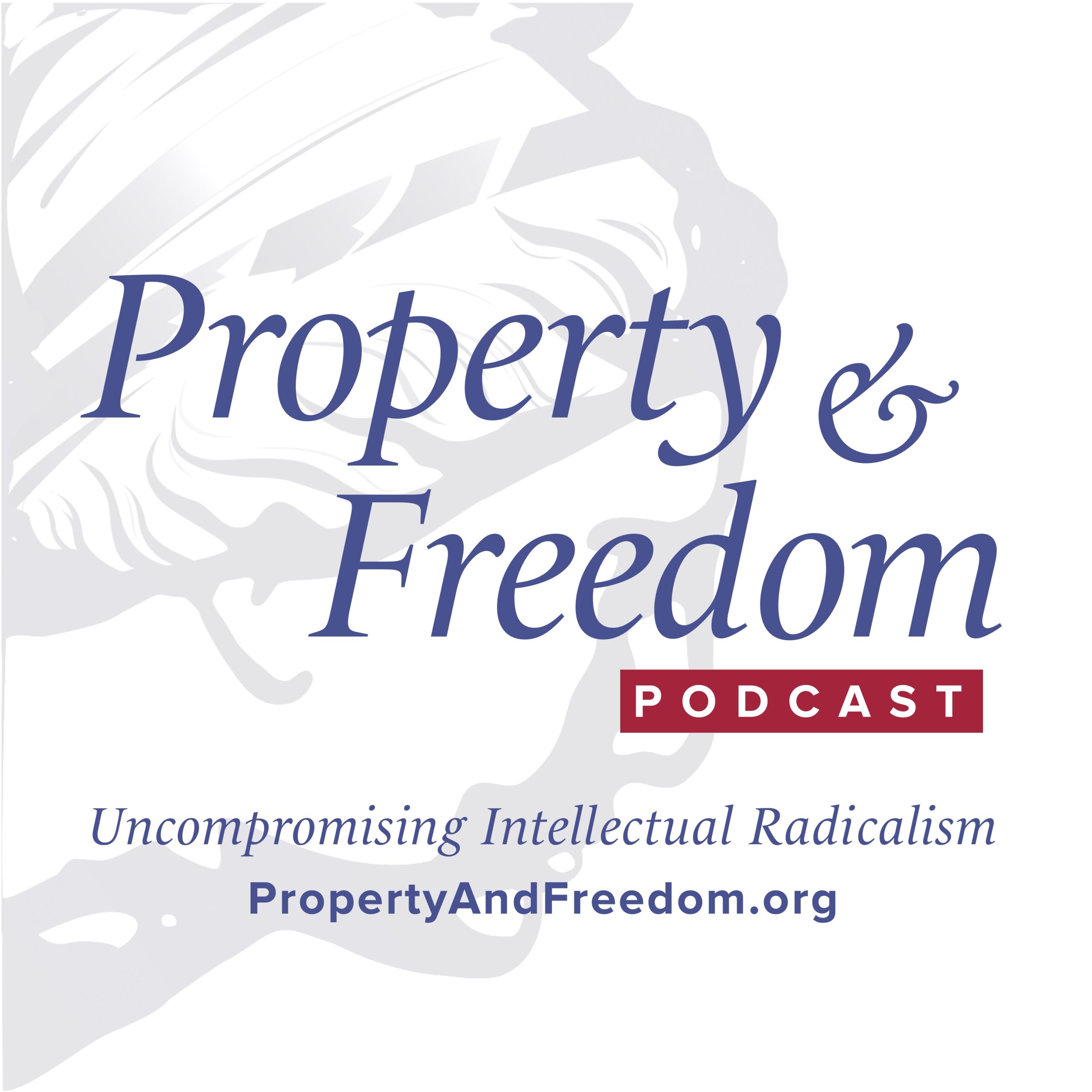



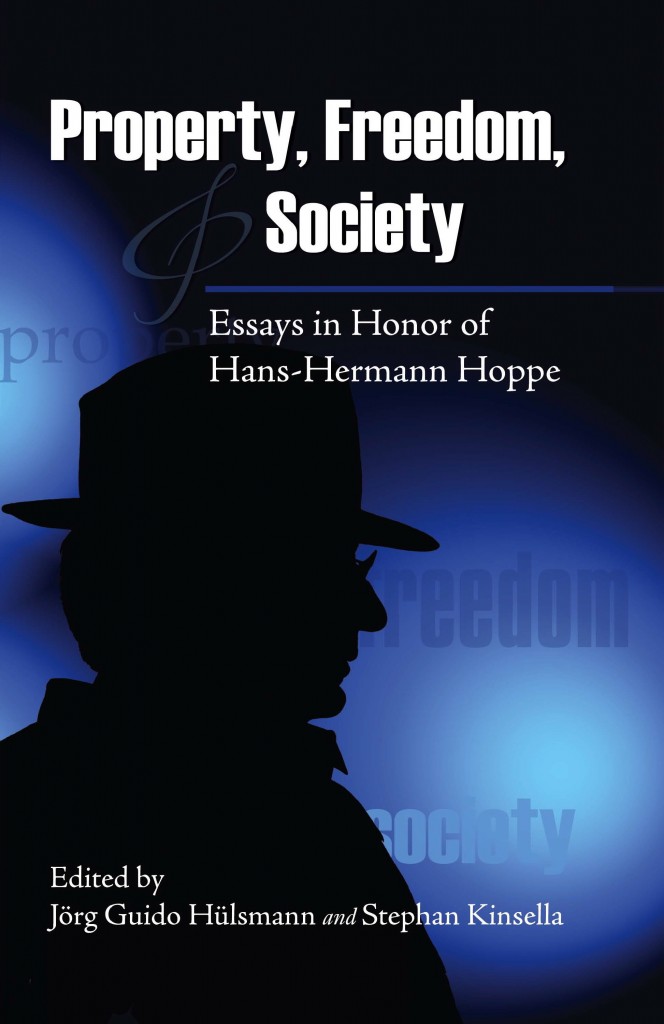
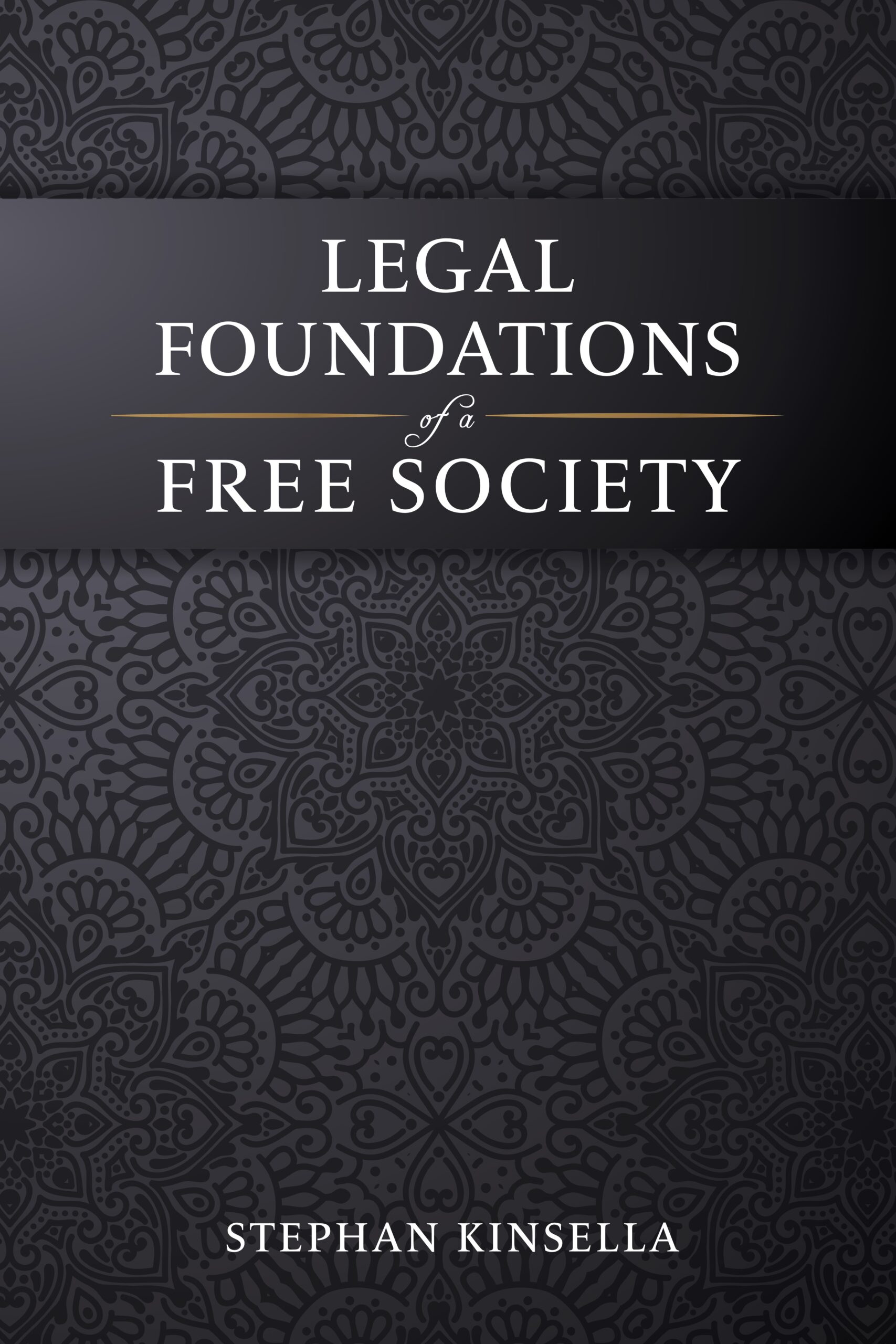





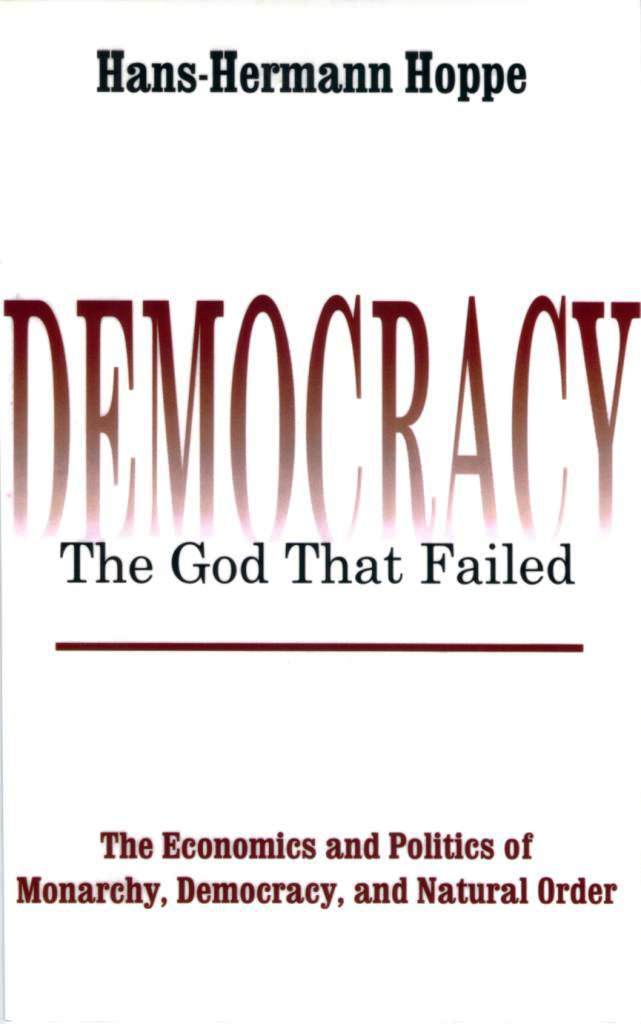


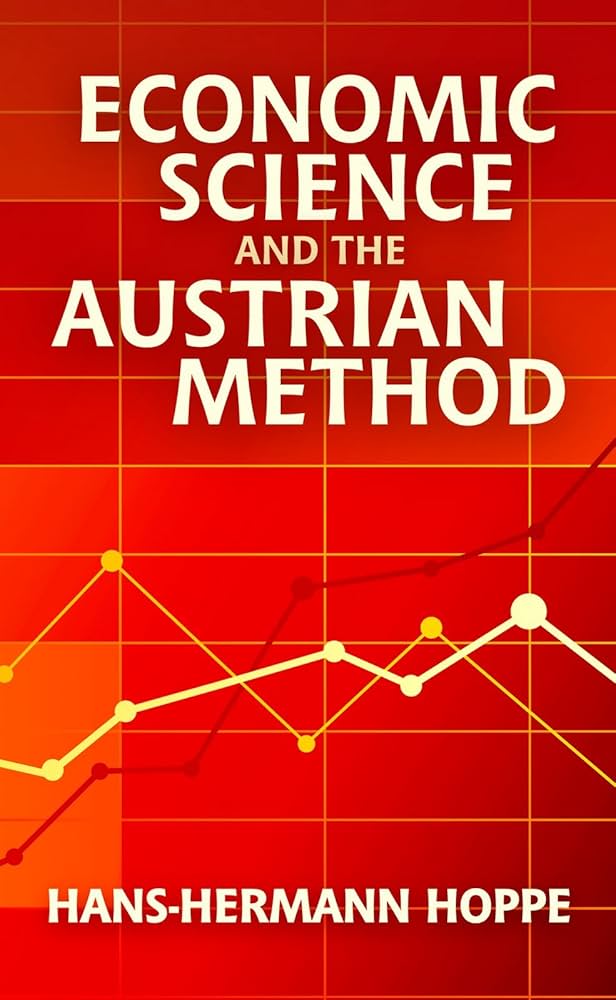
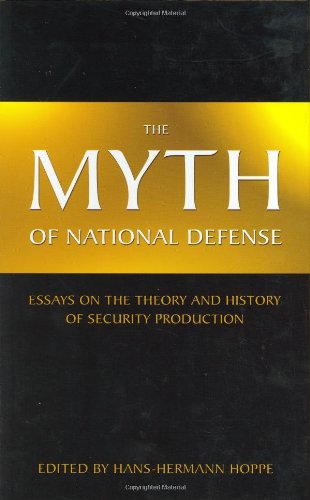
You must log in to post a comment. Log in now.